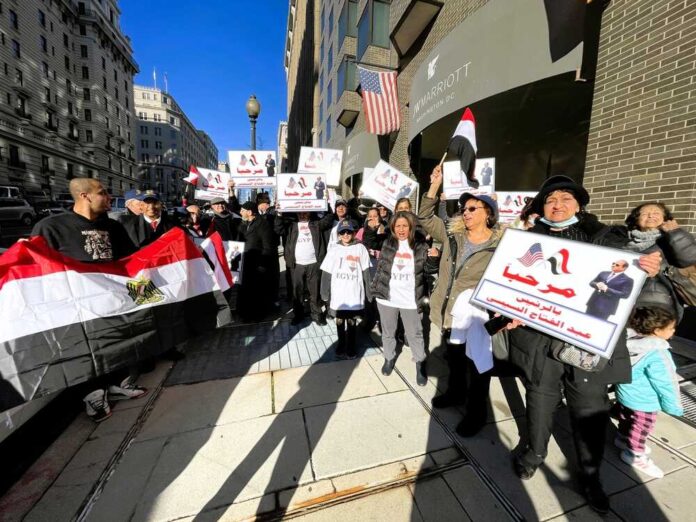With no significant opponents in the December 2023 election, Egypt’s President Abdel-Fattah el-Sissi was re-elected to a third six-year term and took the oath of office on Tuesday, April 2nd.
Parliament met at the new administration’s capital outside of Cairo, where El-Sissi swore the oath of office.
With 66.8% more than 67 million eligible voters casting ballots, El-Sissi secured 89.6% of the votes in December.
In the middle of 2014, El-Sissi was elected president for the first time, and he was reelected in 2018. He was able to seek election for a third term that would last for six years when constitutional modifications were approved in a nationwide vote one year later. These revisions resulted in the addition of two years to his second term.
There were a few presidential contenders. With 4.5% of the vote, opposition Republican People’s Party leader Hazem Omar came in second place; Farid Zahran headed a small left-leaning party; and Abdel-Sanad Yamama led the Wafd, a party that has been around for more than a century but is now regarded as irrelevant.
Ahmed Tantawi, a former member of parliament and leader of the Dignity Party, was President el-Sissi’s most visible opponent. Tantawi’s supporters encountered threats and abuse and had trouble providing the necessary endorsements, so he was not able to be included on the ballot.
Charges of “falsifying” their backing of Tantawi’s candidacy have led to the detention of dozens of his followers in the last several weeks. There have been many arrests and detentions of Tantawy’s family. At the same time, twenty-two campaign members and Tantawy himself are on trial for inciting people to impact the course of the electoral process.
However, Egyptian human rights groups have denied the accusation. In a joint statement, rights organizations denounced the growing retaliatory practices and said that the arrests were aimed at preventing Tantawy from exercising his legal right to run for president.


















